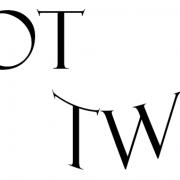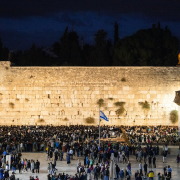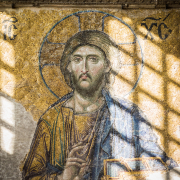The Jewishness of a Divine Messiah
‘Tis the season of wintertime magic. Whimsical carols fill the air. Families bundle up inside. Hot cocoa warms our mugs as snow blankets the ground. Enchantment and serenity are the promises of the season. Even so, in our culture, the magic is intertwined with Christmas—the holiday for Christians to celebrate the coming of Jesus. Try as we might, the spirit of Hanukkah has a hard time competing.
Some of you are in mixed marriages, so you’re comfortable with the two holidays during this season. You may even sneak a tree into your house! But for most Jewish people, Christmas is for Christians, not for Jews.
Did you know that the Incarnation, the main idea that drives the holiday of Christmas, has deep roots in ancient Jewish thought? You might be surprised to learn that the concept of a divine Messiah was not foreign to previous Jewish generations. In fact, some contemporary Jewish scholars argue that the belief in God becoming human (the Incarnation) is deeply rooted in early Judaism. God being with us in physical form may actually be a Jewish idea. Let’s explore how this fascinating concept connects back to this rich heritage.
The Messiah: A Divine Figure?
In the Hebrew Scriptures, the Messiah is often described as a king who will save Israel and bring peace to the world. But what if I told you that some ancient Jews believed the Messiah would be more than just a human leader? They thought he might actually be divine!
The Angel of the Lord: A Divine Messenger
In the Hebrew Scriptures, one of the most intriguing passages that hints at a divine Messiah is found in Exodus 23:20–21. In this passage, God speaks to Israel during her wandering in the desert, saying,
Behold, I send an angel before you to guard you on the way and to bring you to the place that I have prepared. Pay careful attention to him and obey his voice; do not rebel against him, for he will not pardon your transgression, for my name is in him.
This passage describes an angel who bears God’s name and has the authority to forgive or punish. Who is this angel?
The Name of God
The key phrase “my name is in him” from Exodus 23:20–21 is crucial. In Jewish tradition, the name of God is set apart and holy. It represents God’s presence and power. His name is so bound together with his holiness that observant Jews do not even pronounce it. When the angel bears God’s name, it signifies that he bears God’s divine nature. Jewish mysticism scholar Moshe Idel comments,
No real separation between the divinity and the emissary is assumed; rather, the divinity is dwelling within the emissary by means of the name.1
This concept of a divine emissary who bears God’s name was well understood in ancient Jewish thought and provides a foundation for understanding the idea that Jesus could be God in the flesh.
The Angel of the Lord as a Divine Representative
The angel of the Lord appears multiple times in the Hebrew Bible, often in significant moments of divine interaction. For example, this angel appeared to Abraham, Jacob, Moses, and other Israelites, delivering messages and performing acts that only God could do (Gen 18; 31; Exod 3). The Talmudic rabbis often called this angel Metatron, and they associated him with divine attributes (b. Sanh. 38b; 3 Enoch). This has led many Jewish scholars to interpret the angel of the Lord as a manifestation of God himself.
Jewish Scholars on the Divine Messiah
Many contemporary Jewish scholars recognize these ancient roots and their connection to Christian theology. Daniel Boyarin, a prominent Jewish scholar, writes:
The reasons that many Jews came to believe that Jesus was divine was because they were already expecting that the Messiah/Christ would be a god-man. This expectation was part and parcel of Jewish tradition.2
Jewish theologian Phillip Sigal writes,
The originators of Christianity were Jews, and they found their notion of a divine Messiah in their own heritage.3
Jewish scholar Esther Hamori agrees:
The Christian concept of incarnation has its roots in Israelite thought.4
Jewish biblical scholar Benjamin Sommer writes,
No Jew sensitive to Judaism’s own classical sources, however, can fault the theological model Christianity employs when it avows belief in a God who has an earthly body as well as a Holy Spirit manifestation, for that model, we have seen, is a perfectly Jewish one.5
These scholars suggest that the idea of a divine Messiah was not a radical departure from Jewish thought but an unfolding of it.
The Christmas Connection
Christmas celebrates the birth of Jesus, whom Christians and Messianic Jews believe is the Messiah prophesied in the Hebrew Scriptures. According to the New Testament, God fulfilled his promise by becoming human and dwelling among Israel. This is why the Gospel of John states:
The Word became flesh and made his dwelling among us. We have seen his glory, the glory of the one and only Son, who came from the Father, full of grace and truth (John 1:14).
When we understand the ancient Jewish roots of these ideas, Christmas can be seen as a holiday which, at its core, is celebrating what is found within the rich heritage of Judaism rather than a foreign concept.
Embracing an Ancient Theme
We can see that the idea of God becoming human is not alien to Judaism. It’s part of the Jewish story, a story that connects us to the divine in profound ways. The ancient belief in a divine Messiah opens up new possibilities for understanding God’s presence and action in the world. It invites us to consider how God might be working through unexpected means to bring about redemption and peace.
Footnotes
- Moshe Idel, Ben, 17.
- Daniel Boyarin, The Jewish Gospels: The Story of the Jewish Christ (New York, NY: The New Press, 2012), 56. Emphasis in original.
- Phillip Sigal, “Further Reflections on the ‘Begotten’ Messiah,” Hebrew Annual Review 7 (1983), 223.
- Esther J. Hamori, “Divine Embodiment in the Hebrew Bible and Some Implications For Jewish and Christian Incarnational Theologies,” in Bodies, Embodiment, and Theology of the Hebrew Bible, ed. S. Tamar Kamionkowski (New York, NY: T&T Clark, 2010), 180.
- Benjamin D. Sommer, The Bodies of God and the World of Ancient Israel (Cambridge, UK: Cambridge University Press, 2009), 135.








